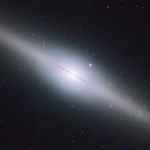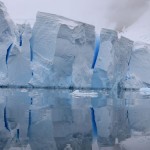
Salmonella typhimurium is one of the leading causes of gastroenteritis in humans. Image: Shutterstock
Salmonella has made a trip on a space shuttle to help researchers understand diseases on Earth.
Recent research onboard NASA’s space shuttle is helping scientists understand how diseases occur in space. This will not only improve astronauts’ health, but it could provide new treatments back here on Earth.
The research is focusing on Pseudomonas aeruginosa, an opportunistic pathogen that caused astronaut Fred Haise to get sick during the Apollo 13 mission in 1970. Scientists hope to discover how disease-causing bacteria function, which could lead to better vaccines and therapies to help us fight infections.
In 2006, two bacterial pathogens, Pseudomonas aeruginosa and Salmonella typhimurium, and a fungal pathogen, Candida albicans, were launched into space aboard shuttles. At the station, they grew in contained vessels for a few days before Cheryl Nickerson from the Biodesign Institute at Arizona State University, and her team evaluated the gene and protein expression patterns in the microbes and how their virulence was affected by lower gravity.
“We discovered that aspects of the environment that microbes encountered during spaceflight appeared to mimic key conditions that pathogens normally encounter in our bodies during the natural course of infection, particularly in the respiratory system, gastrointestinal system and urogenital tract,” Nickerson said in the press release.
The researchers found that spaceflight creates a low fluid shear environment, where liquids exert little force when they move over cells. This affects the molecular genetic regulators and makes the microbes more infectious.
These regulators may function the same way inside our bodies. “We have now shown that spaceflight conditions modified molecular pathways that are known to be involved in the virulence of Pseudomonas aeruginosa,” said Aurelie Crabbe, a researcher in Dr. Nickerson’s lab at ASU and the lead author of the paper, in the press release.
“Future work will establish whether Pseudomonas also exhibits increased virulence following spaceflight as did Salmonella.”






